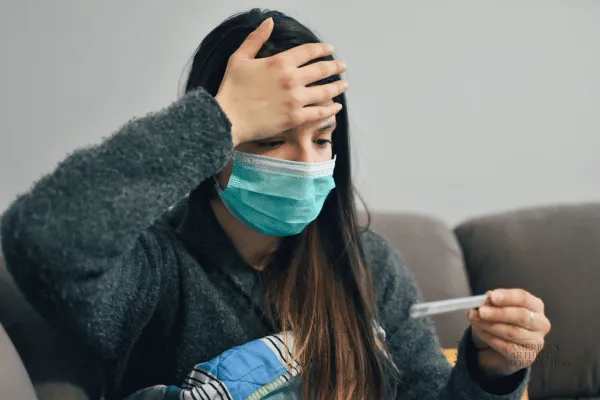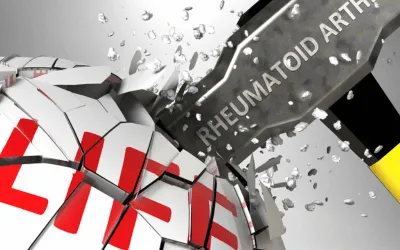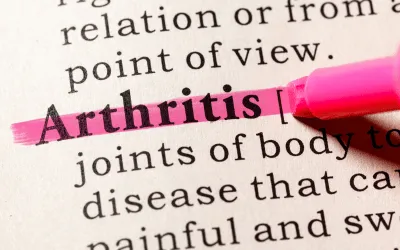About Arthritis
As the nation’s #1 cause of disability, arthritis affects nearly 60 million adults and 300,000 children. Over 100 types of arthritis and related conditions damage the joints and often other organs.
How can we assist you?
Helpful Tools for You

Can Arthritis Medications Help Reverse COVID-19 Lung Damage?
As researchers continue to explore ways to address the long-term effects of COVID-19, a recent breakthrough offers new hope for those suffering from lingering lung issues. Scientists from the University of Virginia School of Medicine and Cedars-Sinai have discovered that certain arthritis medications, already available by prescription, could help heal damaged lungs in people recovering from COVID-19.
This exciting new research points to drugs like baricitinib and anakinra—both used to treat rheumatoid arthritis—as potential solutions for reversing COVID-related lung scarring and inflammation. These findings could make a huge difference for the growing number of patients dealing with what’s now known as “post-infection lung fibrosis,” a condition with no current treatment options.
Understanding Post-COVID Lung Damage
Even after recovering from the virus itself, many COVID-19 survivors continue to experience ongoing lung damage. This often includes scarring and inflammation that can last for months or even years. For these patients, breathing can remain difficult, and their quality of life is severely impacted. Until now, doctors and researchers haven’t had many answers about how to treat this type of damage.
In this study, scientists used advanced lab models to closely examine the lungs of COVID-19 patients. They found that the immune system, which typically helps heal damaged tissue, was malfunctioning. Instead of promoting healing, these faulty immune responses were making things worse by triggering persistent inflammation and fibrosis (scarring).
To dig deeper, the researchers used cutting-edge technologies like spatial transcriptomics, which allowed them to map out how immune cells were interacting within the damaged lung tissue. This helped them identify the specific processes that were going wrong and explore potential ways to stop the damage in its tracks.
Repurposing Arthritis Medications
Here’s where things get interesting: The researchers realized that two drugs already used to treat arthritis could help break this harmful cycle. Baricitinib and anakinra are commonly prescribed to people with rheumatoid arthritis to reduce inflammation, and they seem to offer a similar benefit when it comes to lung damage caused by COVID-19. Both of these medications work by calming an overactive immune system and preventing excessive inflammation, which is exactly what’s needed to heal the lungs.
These drugs, which are already FDA-approved, could be game-changers for people struggling with post-COVID lung fibrosis. According to Dr. Jie Sun from the University of Virginia, this research could finally provide a way to help patients heal from the lingering damage caused by the virus.
What This Means for People with COVID-19 Complications
This discovery isn’t just promising for people recovering from COVID-19—it’s a step forward in treating long-term lung issues caused by other infections, too. Post-infection fibrosis and chronic inflammation aren’t unique to COVID-19; these conditions are also seen in diseases like rheumatoid arthritis, where the body’s immune system turns on itself and causes lasting damage.
By targeting the same overactive immune responses with arthritis medications, we may be able to treat lung fibrosis caused by viruses and even prevent it from happening in the first place. While further research is needed to confirm these findings, the potential to repurpose existing medications could make this treatment option more accessible and available in the near future.
Hope for the Future of Post-COVID Care
The impact of COVID-19 is far-reaching, with millions of people around the world dealing with long-term complications like post-infection lung fibrosis. The need for effective treatments has never been greater, and this research offers a beacon of hope for those still suffering.
By repurposing arthritis drugs that we already know are safe and effective, scientists may have found a faster path to helping patients recover from COVID-19's lingering effects. As more studies are conducted, we hope to see these therapies become a standard part of care for those with long COVID, offering them relief from the ongoing damage to their lungs.
Effects of Arthritis

Cause of Disability
In the United States, 23% of all adults, or more than 54 million people, have arthritis. It is a leading cause of work disability, with annual costs for medical care and lost earnings of $303.5 billion.

Workforce Effects
Sixty percent of US adults with arthritis are of working age (18 to 64 years). Arthritis can limit the type of work they are able to do or keep them from working at all.

Global Impact
In fact, 8 million working-age adults report that their ability to work is limited because of their arthritis. For example, they may have a hard time climbing stairs or walking from a parking deck to their workplace.
Promoting Interventions That Reduce Arthritis Pain
American Arthritis Foundation recognizes several proven approaches to reduce arthritis symptoms:
Be active. Physical activity—such as walking, bicycling, and swimming—decreases arthritis pain and improves function, mood, and quality of life. Adults with arthritis should move more and sit less throughout the day. Getting at least 150 minutes of moderate-intensity physical activity each week is recommended.
Protect your joints. People can help prevent osteoarthritis by avoiding activities that are more likely to cause joint injuries.
Talk with a doctor. Recommendations from health care providers can motivate people to be physically active and join a self-management education program. Should your arthritis be interfering with your activities of daily living you may be a candidate to receive many new treatments, and learn how to reverse the arthritis condition.
Have a question?
We're Here to Help
By providing my phone number, I agree to receive text messages from the business.


